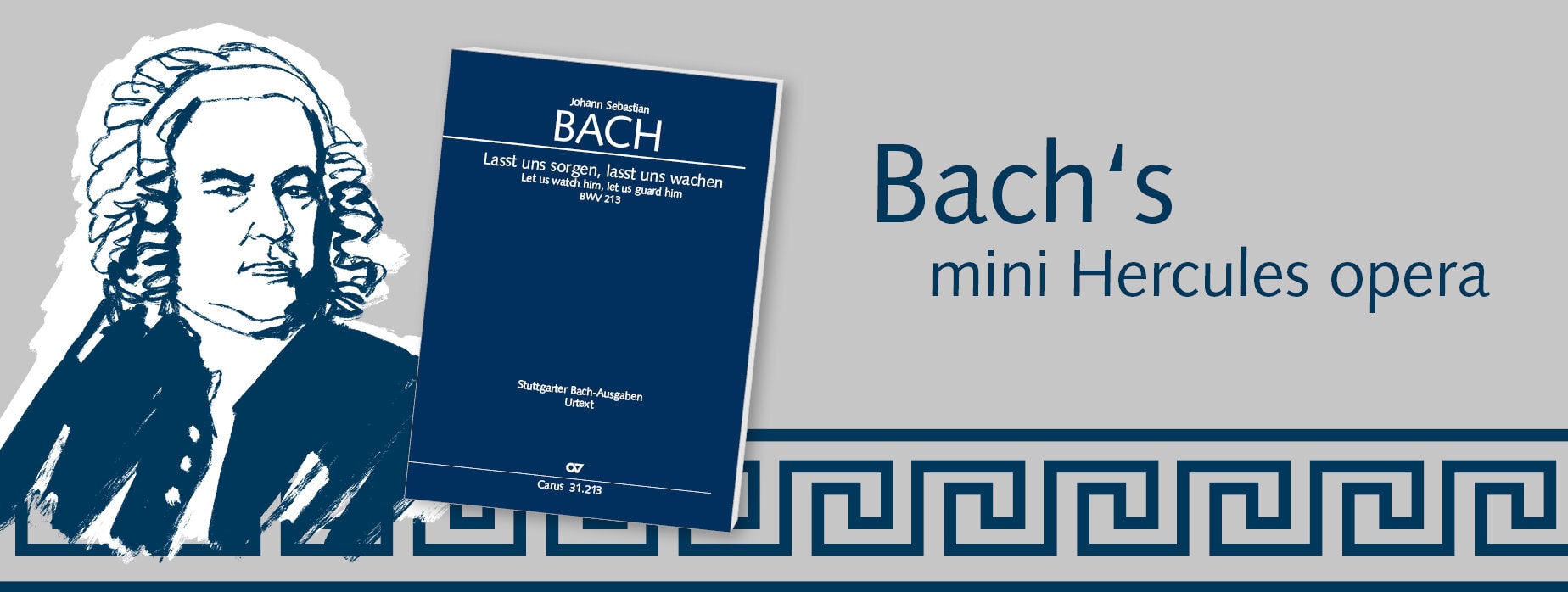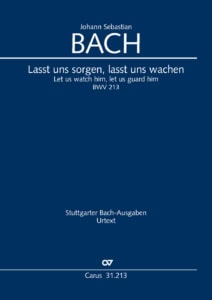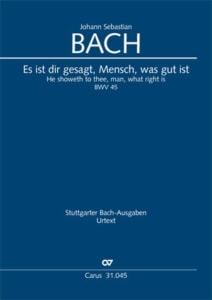Bach’s mini Hercules opera
Lasst uns sorgen, lasst uns wachen (Let us watch him, let us guard him) BWV 213
There’s a lot to discover when you start exploring the origins of the famous parodies in the Christmas Oratorio. We all know the text of the opening chorus to the piece written to celebrate the birthday (in December 1733) of the Saxon Electoress Maria Josepha, which explains the timpani blasts that open the Christmas Oratorio (1734): “Tönet, ihr Pauken! Erschallet, Trompeten” (“Sound, all ye drums now! Resound, all ye trumpets”). And every year we comprehend Bach’s stroke of genius in this opening, here entirely detached from the – mundane – connection to the original text. The second important “quarry” which the composer mined for the Christmas Oratorio was the cantata “Herkules auf dem Scheidewege” (“Hercules at the Crossroads”) (which is in fact the title printed in the text book; Bach only wrote “Dramma per musica” – a not uncommon name for an opera at this time).
Unlike Tönet, ihr Pauken (BWV 214), Lasst uns sorgen, lasst uns wachen (BWV 213) not only an homage but relates the well-known tale of the young Hercules who, reaching a fork in the road, has to choose between the temptations of Vice and the promises of Virtue – and, naturally, chooses the latter. Over the centuries there have been many pictorial representations of this mythological story, which has also been turned into an opera seria (Alcide al bivio, opera libretto by Metastasio, set to music by Hasse and Paisiello, among others). The middle section of Bach’s cantata can be viewed as a mini-Baroque opera, in which – as you might expect – Virtue and Vice make an appearance alongside Hercules. Finally, Mercury announces Hercules’s choice, and the Echo familiar from the Christmas Oratorio also turns up here to advise the hero in his difficult decision. The actual occasion of the performance – the 11th birthday of the crown prince – is only addressed in the last recitative and the two outer choruses. The youthful Hercules represents the young prince, who, of course, has also long since chosen the path of Virtue.
Johann Sebastian Bach
Let us watch him, let us guard him
Hercules at the crossroads (Dramma per musica)
BWV 213, 1733
Unlike the audience 1733 that gathered in Zimmermann’s coffee garden just outside Leipzig’s city walls in the late summer of 1733 to enjoy the birthday music (and possibly enjoy a staged performance? We do not know), we can no longer listen to the cantata with an open mind: most of this music is already so familiar to us! But we are always fascinated and dumbfounded to realize just how different these scores – so wonderfully suited to the texts of the Christmas Oratorio – were in their original form; for example when Hercules rebuffs Vice with “Ich will dich nicht hören, ich will dich nicht wissen” (“I will not regard thee, but wholly discard thee”. (Christmas oratorio: “Bereite dich Zion mit zärtlichen Trieben” – “Prepare thyself, Zion, with tender emotion”) or declaims “ich will nicht, ich mag nicht” („I will not, I may not“. Christmas Oratorio: “den Schönsten, den Liebsten” – „the Fairest, the Dearest“). There is a great deal to discover in this “mini opera”, whose timeless plot makes it one of the most attractive of Bach’s secular cantatas. And the framing choruses are so powerful that we can even tolerate the “blühe, holder Friederich” (“praise thy budding majesty”) at the end (even just changing “Friedrich” to “Jugend” – “youth” – will generalize the meaning of the closing chorus – but I’m sure you will come up with something even better!).
As a musicologist, Dr. Uwe Wolf is particularly at home in the 17th and 18th centuries. The focus of his work ranges from the time of Monteverdi and Schütz to Bach and the generation of Bach’s sons and pupils through to Viennese Classicism. He has been head of the editorial department at Carus-Verlag since October 2011. Prior to this, he worked in Bach research for over 20 years.




 Bach’s cantata He showeth to thee, man, what right is BWV 45 is based on a text from a cantata cycle for the 1704/05 church year, which was originally written for the Meiningen court services. The work combines the profound words from the Sunday Gospel Matthew 7:15-23 and the Old Testament prophet’s words with Bach’s unique musical language.
Bach’s cantata He showeth to thee, man, what right is BWV 45 is based on a text from a cantata cycle for the 1704/05 church year, which was originally written for the Meiningen court services. The work combines the profound words from the Sunday Gospel Matthew 7:15-23 and the Old Testament prophet’s words with Bach’s unique musical language. 



Leave a Reply
Want to join the discussion?Feel free to contribute!